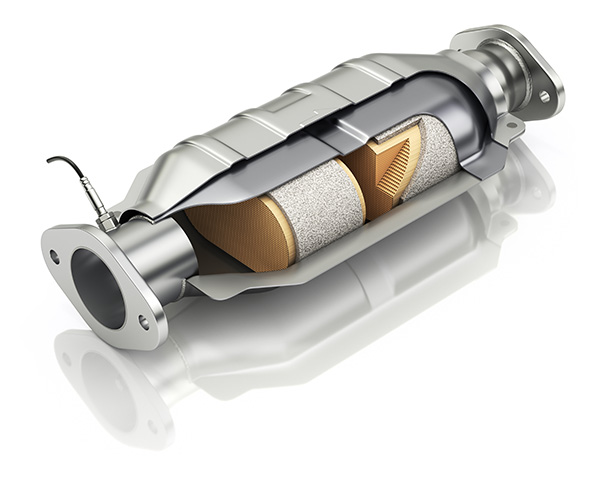
If you've noticed your car using more fuel than usual, but you haven’t changed your driving habits or routine, a hidden issue could be affecting your engine's performance. One often-overlooked culprit is the catalytic converter. This emissions control component plays a crucial role in keeping your vehicle running clean and efficient. When it becomes clogged or blocked, it can quietly rob you of fuel economy while creating strain on the rest of your engine.
Let’s break down how this important part works, why it might become blocked, and what that means for your gas mileage.
What the Catalytic Converter Actually Does
The catalytic converter sits in your exhaust system and helps reduce harmful gases by converting them into less harmful emissions before they exit the tailpipe. It uses a chemical reaction involving precious metals like platinum and palladium to change pollutants like carbon monoxide, hydrocarbons, and nitrogen oxides into carbon dioxide and water vapor.
For this system to work effectively, exhaust gases must flow through it at the correct rate. If the converter becomes restricted, your engine will struggle to push exhaust out, and that affects how it pulls air and fuel in. This can lower your engine’s efficiency and force it to burn more gas than necessary.
What Happens When It Gets Blocked
Over time, the catalytic converter can become partially or fully blocked. This usually happens when unburned fuel or oil enters the exhaust system. These materials can cause the honeycomb structure inside the converter to overheat or break down. When the converter can no longer process exhaust gases efficiently, pressure builds up in the exhaust system, and that pressure pushes back against the engine.
The result? Poor fuel economy, sluggish acceleration, and in some cases, a check engine light. The longer you drive with a restricted converter, the more likely it is that other parts of the engine, such as the oxygen sensors or even the spark plugs, will begin to suffer.
Early Signs of a Failing Catalytic Converter
One of the first signs many drivers notice is a steady drop in miles per gallon. You may find yourself filling the tank more often without changing your route or driving habits. Acceleration may feel slower, especially when going uphill or merging onto highways.
In some cases, you might hear a rattling noise coming from underneath the vehicle. This can be caused by the internal structure of the converter breaking apart. If the converter is severely clogged, your car might even stall or hesitate after starting.
Another warning sign is the smell of sulfur or rotten eggs coming from the exhaust. This odor usually indicates that the converter isn’t processing gases properly.
How a Blocked Converter Impacts Fuel Economy
When your exhaust flow is restricted, the engine has to work harder to perform even basic tasks. You may find the throttle response feels delayed or that the vehicle struggles at higher speeds. Since the engine isn't expelling exhaust efficiently, it can't draw in fresh air and fuel as it should. This imbalance often causes the engine control module to increase fuel delivery in an attempt to maintain power, which leads to higher fuel consumption.
In short, your engine becomes less efficient and more wasteful, even though you may not see any major symptoms at first.
Can It Be Cleaned or Must It Be Replaced
In some mild cases, a partially clogged catalytic converter can be cleaned using special fuel additives or cleaning services. However, this only works when the blockage is caused by carbon buildup and not structural damage. If the internal materials are melted, broken, or coated with oil or fuel residue, cleaning won’t help.
A full replacement may be necessary, and while that can be a costly repair, continuing to drive with a failing converter can damage other parts of the engine, leading to even more expensive fixes.
Regular Maintenance Helps Prevent Converter Damage
One of the best ways to protect your catalytic converter is by maintaining the health of your engine overall. Make sure your spark plugs are firing properly, address oil leaks quickly, and don’t ignore engine misfires. All of these conditions can send unburned fuel into the exhaust, which shortens the lifespan of the converter.
Routine inspections during oil changes or emissions checks can also catch early signs of trouble. If you notice a decline in gas mileage or performance, it's worth having your exhaust system looked at before the problem worsens.
Exhaust System Inspections in Fort Madison, IA
At Griffin Muffler & Brake Center in Fort Madison, IA, we offer thorough diagnostics for exhaust systems, including catalytic converters. If you’ve noticed reduced gas mileage or sluggish engine response, we can help determine whether a blocked converter is the cause. Our technicians use modern diagnostic tools to check for backpressure, scan for error codes, and inspect the entire system. Stop by today for an expert opinion and dependable service that keeps your car running efficiently.